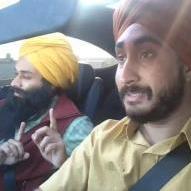-
Posts
150 -
Joined
-
Last visited
-
Days Won
1
allplaideverything last won the day on February 5 2015
allplaideverything had the most liked content!
Profile Information
-
Gender
Not Telling
-
Location
Davis, CA
-
Application Season
Already Attending
-
Program
PhD English
Recent Profile Visitors
3,296 profile views
allplaideverything's Achievements

Latte (6/10)
191
Reputation
-
 hibiscus reacted to a post in a topic:
The Graduate School Ponzi Scheme
hibiscus reacted to a post in a topic:
The Graduate School Ponzi Scheme
-
 FeetInTheSky reacted to a post in a topic:
Campus Visits
FeetInTheSky reacted to a post in a topic:
Campus Visits
-
 mouthfulofstars reacted to a post in a topic:
Grad Schools with Interest in Comics
mouthfulofstars reacted to a post in a topic:
Grad Schools with Interest in Comics
-
 __________________________ reacted to a post in a topic:
Grad Schools with Interest in Comics
__________________________ reacted to a post in a topic:
Grad Schools with Interest in Comics
-
 poliscar reacted to a post in a topic:
Americanists
poliscar reacted to a post in a topic:
Americanists
-
 allplaideverything reacted to a post in a topic:
Choosing Specialization?
allplaideverything reacted to a post in a topic:
Choosing Specialization?
-
I'm doing psychoanalysis & literature at UC-Davis! This is indeed a pretty good place to do such work, and you're right that Buffalo and Duke are also great. I too am happy to chat more with you about specifics if you want.
- 7 replies
-
- literature
- phd
-
(and 2 more)
Tagged with:
-
I agree with poliscar--I think the general attitude of a department with regards to what kind of work they tend to find valuable is perhaps most important. You needn't find a department with somebody who specializes in posthumanism in order to do posthumanism, but you'll at least want to end up in a place that supports emergent trends in critical theory, ecocriticism, science & technology studies, or something like that. I found it very helpful to look at the titles of recent PhD student dissertations. Considering your specific examples, though, there are probably over a dozen programs with multiple Victorianists and at least one person (not necessarily a Victorianist though) who engages with posthumanist theory. (And if those examples are indeed what you're interested in, I'd like to recommend that you take a look at our program at UC-Davis! We've got like three or four very brilliant Victorian scholars, and lots of folks doing animal studies, ecocrit, STS, new materialism, etc etc, engaging with posthumanism and antihumanism in lots of ways!) (Edited to add: We just hosted a conference here called Vcologies, looking at ecology and Victorian lit, that was pretty rad: http://vcologies.org/#/schedule)
-
 allplaideverything reacted to a post in a topic:
Your Research in Relation to Current Research (SoP)
allplaideverything reacted to a post in a topic:
Your Research in Relation to Current Research (SoP)
-

Americanists
allplaideverything replied to WildeThing's topic in Literature, and Rhetoric and Composition
I think poliscar is right. I'd add that you might find it more useful to focus on the theoretical / methodological leanings of departments more than how many 20th C Americanists they have. Basically every department will have at least one person who does 20th C Am, and you can read the literary texts you're interested in on your own. If you're really into psychoanalysis, though, or Marxism, or whatever, you'll need to be in a department that supports that kind of work. -
 allplaideverything reacted to a post in a topic:
Grad Schools with Interest in Comics
allplaideverything reacted to a post in a topic:
Grad Schools with Interest in Comics
-
UC-Davis has a couple people working in visual culture, and one of them (Matthew Stratton) offered a grad seminar in comics last year. I wouldn't say it's a huge focus of our department, but we're friendly to it. UW-Madison has Ramzi Fawaz, who's super rad.
- 19 replies
-
- comics
- visual culture
-
(and 2 more)
Tagged with:
-
 hmss9245 reacted to a post in a topic:
Choosing Specialization?
hmss9245 reacted to a post in a topic:
Choosing Specialization?
-
 __________________________ reacted to a post in a topic:
Colonial/ Postcolonial Lit PhDs or Professors?
__________________________ reacted to a post in a topic:
Colonial/ Postcolonial Lit PhDs or Professors?
-
 lesabendio reacted to a post in a topic:
Colonial/ Postcolonial Lit PhDs or Professors?
lesabendio reacted to a post in a topic:
Colonial/ Postcolonial Lit PhDs or Professors?
-
 HumanCylinder reacted to a post in a topic:
Colonial/ Postcolonial Lit PhDs or Professors?
HumanCylinder reacted to a post in a topic:
Colonial/ Postcolonial Lit PhDs or Professors?
-
 allplaideverything reacted to a post in a topic:
I Bombed the Subject Test. Now What?
allplaideverything reacted to a post in a topic:
I Bombed the Subject Test. Now What?
-
 allplaideverything reacted to a post in a topic:
Colonial/ Postcolonial Lit PhDs or Professors?
allplaideverything reacted to a post in a topic:
Colonial/ Postcolonial Lit PhDs or Professors?
-
Take a look at UC-Davis. We've got three great Victorianists--Liz Miller, Kathleen Frederickson, & Parama Roy. Parama also does colonial/postcolonial lit & theory, and is one of the most intimidatingly brilliant people I've ever met (http://english.ucdavis.edu/people/proy). We also just generally have lots of faculty with strengths in critical theory, Marxism, etc., and I think we're generally a good place to do intersectional 19th C work. I'd also add that, while of course you shouldn't apply to programs that don't have any 19th C British / colonialism scholars, it's probably more important to select programs that seem to have a more general intellectual identity that appeals to you, rather than seeking out a faculty member or two who are working on the exact thing that excites you--that one scholar you really want to work with might be busy, or might be less dedicated to graduate students, or might just be a jerk.
-
 allplaideverything reacted to a post in a topic:
Preferred Candidate Profile?
allplaideverything reacted to a post in a topic:
Preferred Candidate Profile?
-
 Ramus reacted to a post in a topic:
Preferred Candidate Profile?
Ramus reacted to a post in a topic:
Preferred Candidate Profile?
-
 allplaideverything reacted to a post in a topic:
Questions: BA directly to PhD
allplaideverything reacted to a post in a topic:
Questions: BA directly to PhD
-
 allplaideverything reacted to a post in a topic:
Questions: BA directly to PhD
allplaideverything reacted to a post in a topic:
Questions: BA directly to PhD
-

Preferred Candidate Profile?
allplaideverything replied to WildeThing's topic in Literature, and Rhetoric and Composition
I mean, take my comments with however much salt you want. But I think publishing before you're really doing *great* work is risky for lots of reasons--and if you think you're already doing *great* work before even starting a PhD, either you're a genius who probably doesn't need my advice, or you might have an inaccurate idea of the kind of work being done in literary crit / scholarship. Read the top journals in your sub-field, pay attention to the mastery, knowledge, and range of references the authors demonstrate, and look them up and see where they are in their careers. If you think your work is comparable to what you're reading in the top journals, then hey, go for it! But be aware that it's not at all guaranteed to help you get in, some admissions committees might think you're getting ahead of yourself in a less than attractive way, and your ideas about the issues, concepts, and texts you're writing about now will absolutely change during your PhD program, and the best case scenario is that you publish in a great journal and hiring committees will be asking you about this article you don't at all agree with anymore 6-7-8 years from now. -

Preferred Candidate Profile?
allplaideverything replied to WildeThing's topic in Literature, and Rhetoric and Composition
Hey WildeThing! Almost nobody entering a PhD program in English has published their scholarly work (and I'm guessing this is true across the humanities more generally). The expectation is that your thinking and your work will improve exponentially in the PhD program; the work you're doing beforehand isn't expected to be professional / publishable. It's conceivable that some admissions committees would be impressed with an applicant who has published a good paper in a good journal; but it's also a mild possibility that some admissions committees would interpret your having published as a sign that you already feel your work is where you want it to be (and thus that you'd be less flexible as a student, etc.). Conference presentations demonstrate that you're committed to academic work and that you're motivated to learn more and to professionalize. -
 allplaideverything reacted to a post in a topic:
Choosing Specialization?
allplaideverything reacted to a post in a topic:
Choosing Specialization?
-
 allplaideverything reacted to a post in a topic:
Decision(s) 2016
allplaideverything reacted to a post in a topic:
Decision(s) 2016
-
Hey GradCafe! I'm finishing up my first year of the PhD (ahh!!), and wanted to start a conversation with you brilliant folks about choosing our area(s) of specialization. The specialization I proposed in my SOP & writing sample, which was pretty specific in terms of periodization and methodology, is no longer especially thrilling to me. Coursework, and more generally hanging out with my awesome cohort and being around great faculty, has gotten me excited about stuff I had no idea I'd be into! (For example, I came in as a 19th Century Americanist, and have somehow fallen in love with a few 18th Century British poets! Weird.) (Also, note to future applicants: Don't feel like your proposed area of specialization is a binding contract! You'll have freedom and flexibility in your program to adapt your interests.) So, I'm wondering how you all are going about choosing your areas of specialization! I can imagine beginning with specific authors or literary texts and building an interpretive methodology from there; I can also imagine beginning with a specific theoretical framework or conceptual problem and looking for texts that might help think through the questions. Other approaches?
-
Finding Marxist faculty shouldn't really be a problem, and any 20th Century lit scholar is going to be familiar with the authors you noted, even if that's not who they primarily write on. You shouldn't worry about finding faculty members whose interests overlap completely with yours--rather, try to find programs that support Marxist / critical theory criticism, and make sure they have a Modernist or two on faculty. I feel like that list will probably include about half of the top 50 PhD programs in English. Your committee, for example, (assuming your interests don't shift radically, which they probably will), might include someone working on Modernism who primarily writes about Woolf (but will still know Joyce et al), a Marxist who does film studies, and a 20th Century Americanist who does critical race studies, or something like that. You need not find a person who uses Marxian critique to write about Hemingway and Fitzgerald in order for you to do that. Try not to get too down! If you pay attention to the general atmosphere and attitudes of the programs, you'll find some good fits! I'm not much of a 20th Century person, but take a look at the UC schools, Duke, CUNY.
-
Of course everybody has to decide for themselves what their goals and priorities are, so, I'm glad this strategy has worked out for you, telkanuru! That said, the suggestion that you can really know enough about various graduate programs to be able to accurately predict where you'll be happiest, where you'll find mentors and colleagues who challenge and encourage you in the best ways, where you're able to do your best work, where your interests 3 years from now will be and therefore where those interests will make you a good fit, etc., is a pretty, um, ambitious claim. While the job market is of course competitive and terrifying in all sorts of ways, going to one of the "best" programs doesn't guarantee you a job (or even guarantee that you'll finish the degree), and going to a lower ranked program doesn't guarantee that you won't get a job (though it might guarantee that you won't be teaching at Harvard). I think the great majority of informed PhD applicants in the humanities apply broadly because indeed their goal is to do a PhD, which you can't do if you're not accepted. Tineblas, I applied to 12 PhD programs, across the ranking spectrum, and am so far pretty happy with how it went. Best of luck!
-

critical theory programs??
allplaideverything replied to yellowkingduck's topic in Literature, and Rhetoric and Composition
We've got a pretty strong focus on critical theory at UC-Davis. You can get a Designated Emphasis in the field (like a major for PhDs, I guess), there's an interdisciplinary program/dept. (http://crittheory.ucdavis.edu/welcome) with some courses required for all English PhDs, and more generally, our English faculty members are quite committed to various movements within critical theory. -
I finally had my first seminar today! UC-Davis (and, I gather, many of the other west coast public universities) is on the Quarter system & starts super late. I don't get paid until November, which I wish they'd told us earlier. But seminar was so much fun! And yes, I echo all the OMG-SO-MUCH-READING. I guess I decided to do a PhD in Lit. mostly to get better at reading, and to read more widely and just more. So I'm definitely happy & excited about it. But it's a real change of pace from reading a stack of poems & a couple craft essays per week.
-
Hey amiinside! Congrats on finishing the BA! Obviously whether you want to pursue graduate studies in a very competitive job market is a choice only you can make, but I feel like you definitely have as good a chance as anybody else, and your research interests won't keep you out. My application this past year, which I feel was overall pretty successful, was pretty heavily focused on the US Civil War--my writing sample was mostly a close-reading of one soldier's letters home, along with a lot of theoretical background, and I applied specifically in 19th Century American lit. Here are some random thoughts & tips: 1. I've heard from multiple sources that something like 70% of English PhD applicants apply to study 20th Century and/or post-WWII (American and/or British). Since admissions committees usually select candidates in order to balance the various sub-disciplines, this means that WWII (and possibly even 20th Century lit overall) is much more competitive than every other field. 2. This one is based much less on information from professors & current grads, but my suspicion is that applicants who express a strong interest in some transhistorical field--like "War Literature"--might be a tougher sell for admissions committees. While your work during the program might lead you to a transhistorical project (or, alternatively, might steer you strongly in one specific direction), I feel like picking one war (/ one time period) and focusing on it in your application letter and writing sample might behoove you. You can even say that you've got an interest in War Literature more generally, but being clear that "I'm applying to study American literature & culture during WWI" might make you more competitive. Ad-coms still rely, at least in part, on the rules of the market--they want students who will fit into and contribute to existing structures of research and specialization, even as we work to break down disciplinary boundaries. 3. It also seems to me that having a new approach to your sub-discipline is pretty important. You don't have to have all the answers, or have a brilliant new theory, but expressing interest in and familiarity with an emerging field of study that could revitalize your sub-discipline can be helpful. I applied, for example, with an interest in bringing together 19th Century American lit and transgender studies--a classic (but less competitive) sub-discipline with an emerging / hot theoretical approach. I think proposing to work in, like, Critical Food Studies and WWI Literature, or something like that, would be more intriguing to an ad-com than just saying you really like Wilfred Owen. SO, thinking about what specifically interests you about moments and texts of war, or what might be interesting that not a lot of folks have talked about before, could give you an edge (and even if you don't come up with a hot theoretical lens, being more specific will always be beneficial). 4. I just want to say again that what you apply in is not necessarily what you'll wind up dissertating on. While you certainly shouldn't say you want to work on something you're not interested in, you can feel confident that limiting your application to one specific war will not itself prevent you from researching a broader set of texts. 5. My pitch for focusing, at least at first, on the US Civil War: While there aren't many programs that specialize in "War Literature," and even big departments might only have one person who works specifically with one of the World Wars, basically any 19th Century Americanist has to at least be familiar with texts and discourses of the Civil War--and almost every department has at least one or two 19th Century Americanists. For example, while Dorri Beam at Syracuse might not write very much about the Civil War in particular, she'd certainly be able to help you with research and point you to current work in the field. The same might not be as true of 20th Century British Lit folks re: the World Wars. 6. As sort of an extension of the last point, keep in mind that you don't need to find a professor who does exactly what you want to do. If you were studying the differences in environmental writing between World War I and World War II, for example, you might structure your dissertation committee like this: Your Director specializes in WWII and Post-WWII Transatlantic Literature and can help point you in the direction of current work on earlier 20th Century Lit; your other readers/advisors might be a Postcolonialist (who can therefore direct you to critical discussions of the Wars from anti-hegemonic writers) and an Ecocritic (who can therefore help you with your theoretical approach). Or something like that. Does my application list still show up in my signature? I can't advise on WWI-WWII literature, but most of the schools I applied to would be good places to study the US Civil War. UC-Davis might be an interesting place for you to look into--Beth Freeman does 19th C Am. and queer theory, and both Hsuan Hsu and Mark Jerng are more transhistorical dudes who do 19th & 20th C. Am., along with stuff like critical race theory and ecocriticism, so they might be able to help with both the Civil War and the World Wars. Brown might be good if you chose one specific time period, but I think they might be sort of rigid about that. Rutgers and Fordham are both strong in 19th C. Am. You might also look into Ohio State, Emory, UNC, Iowa, Penn State. Hope some of that is helpful! Good luck!
-
I'll be starting at UC Davis in the fall. They've got a pretty good program in ecocrit--Mike Ziser does all kinds of ecocrit stuff and is writing about oil & petro-culture right now, Hsuan Hsu is working on race & geography & environmental risk, Tobias Meneley does animal studies, and Margaret Ronda does ecocrit and 20th/21st C poetics. It also seems like there are a good amount of grad students there who incorporate ecocrit into their work. Oregon has a super strong ecocriticism program, too. I know Utah has an M.A. program in Environmental Humanities, in case you're looking at masters programs.




